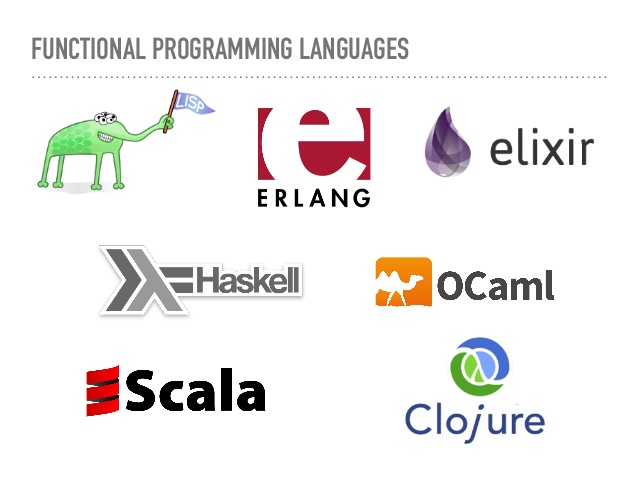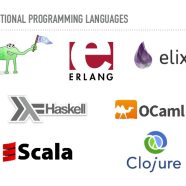Functional programming languages
Functional programming languages are the coding languages designed given science – lambda math, to be correct. These languages are utilized to create the programs that are executed by assessing articulations instead of being made out of statements which alter when performed and implemented, which would be viewed as basic programming.
Numerous new computer programming languages have been produced throughout the years. Two mainstream and generally utilized cases of such programming languages are Ruby on Rails and Haskell (otherwise called essentially “Ruby”).

Haskell is basically an open source stage that has been produced throughout the most recent twenty years by a dynamic group of analysts, debuggers, and programmers. It is viewed as one of the main languages accessible today and is utilized to make exceedingly adaptable, simple to look after and maintain programming software.
Haskell Curry, whom the language is termed for, was a mathematician and statistician whose work in numerical logic will fill in as a foundation for the FPLs today. The primary version of the Haskell was introduced in 1990. Haskell is viewed as one of the “purest” types of functional programming since it depends so vigorously on the “function” plus mathematics that it depends on.
Ruby, made by Yukihiro “Matz” Matsumoto in the mid of 1990’s, is another sample. Ruby programming language supports various programming styles, comprising both imperative and functional as talked about above.
Programmers and software engineers utilize functional programming languages, for example, Ruby to create no matter what from small applications, utilized just inside their organizations to large open-source programs utilized far and wide. In light of its adaptability, there are many “offshoots” of the Ruby computer programming language, comprising the prominent application system called “Ruby on the Rails.” The Ruby on Rails site expresses that countless “Rails applications” have been produced to date containing popular applications, for example, Shopify, Groupon, and Twitter.
Scala is another multi-paradigm functional programming language with an accentuation on functional programming that keeps running on the Java virtual machine. Starting today, Scala is your most apparent opportunity at programming functionally as well as getting paid for it, plus the Scala people group is the most dynamic in tending to the subject of how the thoughts of functional programming (which frequently begin in the scholarly community) might best be given something to do in industry.
Elm is a typed strongly, merely functional customer side programming language that orders to JavaScript. The syntax is terse, like F# or Haskell. However, the programming language, as well as tooling, are significantly more comfortable to use.
A standout amongst the most generally utilized yet additionally hardest functional programming languages to learn and study is APL, which needs its own exclusive and unique keyboard. The prospect of figuring out how to utilize another sort of keyboard might be overwhelming!
Things being what they are, which functional programming language would you be able to learn? Think about a portion of the accompanying strong contenders:
• Scala
• Idris
• Haskell
• F#
• Elm
• Elixir
• Clojure







Recent Comments